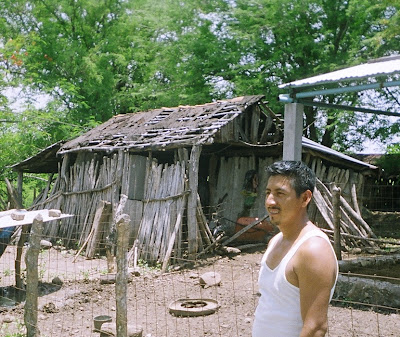I was sitting on our deck up north with my eight year old niece watching the sunset, and she commented on the peace and quiet. She lives in a house with 2 parents, 4 kids, a dog, a talking bird (Macaw), doves, and rabbits (her dad is a magician). Sitting on the deck, she said to me, "Sometimes at mass Fr. Tom closes his eyes, and we all take a moment. That is about the only peace and quiet I ever get!" Out of the mouths of babes! We do not live in a culture that values silence. With all of our cell phones, ipods, entertainment systems, etc., not to mention just the chaotic households many live in, how often do we get to truly experience silence? And yet we have a deep need for silence and contemplation. Even an eight year old can recognize that fact!
In the Vatican II series we are currently having at the parish, we just discussed the Constitution on the Sacred Liturgy. While the main point of the document is the importance of the "full, conscious, and active participation of the laity" in prayer
and song (which, by the way,
is prayer - in fact Augustine says singing is praying twice!), there is also a line in the Constitution that notes the importance of times of reverent silence during the liturgy. I have been at parishes where the pastors have tried to incorporate such times of silence, and the tangible uncomfortableness of many people is almost amusing, if it weren't so sad. We don't know how to be silent. Sitting and being silent is often regarded as a waste of time in our very efficient society. At my parents' church up north, the priest would sit down after the homily and close his eyes for a good amount of time. Since the church was usually full of tourists, who were unaware that this was his normal mode of operation, eventually you would hear the whispers, "Is he alright? (he was in his late 70s or early 80s) "Did he fall asleep?" Silence often seems to indicate to us that something has gone wrong. Silence is often referred to as "awkward". In theatre, silence often means that someone has forgotten an entrance or a line, so the after that silent pause, the other actors quickly jump in and improv to fill that silence until everything is on track again. Hence the other assumption that is sometimes made when a priest is silent: "Did he forget what comes next?"
And yet most of us do also know peaceful silence. Many of us have experienced that beautiful silence of holding a sleeping child. Loved ones know what it means to walk or sit in companionable silence. There is a song that came out not too long ago by the Dixie Chicks called "Easy Silence." The refrain is:
The easy silence that you make for me. It's okay when there's nothing more to say to me. And the peaceful quiet you create for me, and the way you keep the world at bay for me.
The song immediately captivated me because it just invokes that sense of loving silence. In our spiritual lives, we need that kind of silence as well. We need to simply be with God. In Centering prayer they say,
"God's first language is silence."
One does not necessarily need to spend 20 minutes in silence as we do in centering prayer; even just taking a few moments during the day to be quiet is important, as Scripture advises us, to
Be still and know that I am God.
-Psalm 46:11
Last night I saw the movie,
Into Great Silence. Not only is the movie filmed at the
Grande Chartreuse Carthusian monastery where the monks spend most of their time in silence, but the film itself is basically silent. There is no narration or music, other than the occasional scene in which the monks are chanting or very rarely speaking. Most of the movie is simply silent, allowing you to hear the natural sounds from the fall of footsteps on the stairs to the sound of the wind or the water. While I will admit, the movie is quite long, and I did get rather restless during the middle section, it is also unbelievably beautiful. You enter into the monks' silence, and the filming directs your attention to the simple beauty we often miss in the chaos of our lives, from a drop of water to the way the sunlight shines on the wooden floor. The natural beauty, from the majestic French Alps to the minute intricacy of a seed pod, is heightened through the calm quiet of the movie. Reiterated through the movie is the written line from the prophet Jeremiah (20:7) that would appear on the screen,
"You seduced me, O Lord, and I was seduced."
A more accurate translation (which did come through in French and German, also written on the screen) is, "You seduced me, O Lord, and I
let myself be seduced." Actually, our English translations often uses the word "duped" instead of "seduced" (Jeremiah is rather upset with God in this passage), and I like both translations, depending on my mood, but my challenge to all of us this week is to take a moment to let ourselves be seduced by the silence of God.







